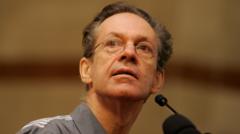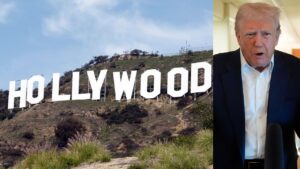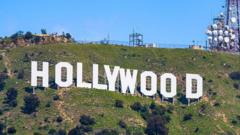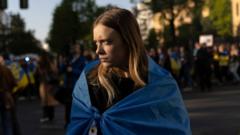The latest release of documents provides more transparency into the events surrounding JFK's assassination but leaves many questions unanswered.
Fresh Insights from Recent JFK Document Releases: What You Need to Know
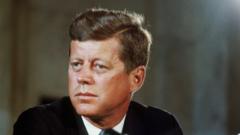
Fresh Insights from Recent JFK Document Releases: What You Need to Know
Newly unsealed files related to John F. Kennedy's assassination shed light but also raise further questions.
In a recent release of over 2,000 documents connected to the assassination of President John F. Kennedy, experts have emphasized the significance of both the content and omissions within these newly unsealed files. While the Trump administration’s disclosure has stirred some excitement, it does not resolve all lingering uncertainties surrounding that fateful day in Dallas in 1963. The files do, however, contain original documents with fewer redactions than previously available materials, allowing clearer insights into the historical event.
Experts assert that while significant documents have emerged, the new release does not offer revelations that alter the prevailing narrative regarding Lee Harvey Oswald, the lone assassin, according to the US government's investigation. John F. Kennedy remains the most recent US president to have been assassinated, and the intrigue surrounding his death persists even decades later.
Jefferson Morley, an editor of the JFK Facts blog, remarked on the excitement circulating this release, calling it a notable advancement in transparency. He highlighted that the newly available documents provide a deeper understanding of the Central Intelligence Agency’s (CIA) extensive surveillance of Oswald well before the assassination. Philip Shenon, an author experienced in the complexities of the case, shared insights indicating that Oswald had allegedly discussed intentions to kill Kennedy during a trip to Mexico City mere months before the tragedy.
A number of documents also portray Kennedy’s fraught relationship with the CIA, revealing the agency’s influential role in shaping foreign policy at that time. Arthur Schlesinger, a Kennedy aide, penned a memo critical of the CIA’s pervasive involvement in US embassies, noting it posed challenges to the integrity of American policy-making. David Barrett, a Villanova University professor, welcomed the release of these documents, recognizing the necessity for such transparency despite the persistence of redactions.
Online discussions have reignited long-standing conspiracy theories, albeit with little substantiation. Recent narratives claim connections between military intelligence agents and plots against Kennedy; however, many of these ideas have circulated for decades and lack concrete evidence.
The release of the files was mandated under a 1992 law that sought full disclosure of related documents by 2017, albeit with caveats concerning national security. Despite fewer redactions, it appears not all documents were fully released. President Trump had pledged to minimize redactions ahead of the release. Morley noted that additional records remain within the National Archives and those held by the CIA and FBI that could lead to further clarifications in the future.
Even as new documents are released, the complexity of the JFK assassination continues to intrigue historians, experts, and conspiracy enthusiasts alike. Barrett stated that the discourse surrounding such significant events will endure, with speculation persisting alongside available evidence. The questions surrounding JFK's assassination, like many historical events shrouded in mystery, are likely to remain unresolved.
Experts assert that while significant documents have emerged, the new release does not offer revelations that alter the prevailing narrative regarding Lee Harvey Oswald, the lone assassin, according to the US government's investigation. John F. Kennedy remains the most recent US president to have been assassinated, and the intrigue surrounding his death persists even decades later.
Jefferson Morley, an editor of the JFK Facts blog, remarked on the excitement circulating this release, calling it a notable advancement in transparency. He highlighted that the newly available documents provide a deeper understanding of the Central Intelligence Agency’s (CIA) extensive surveillance of Oswald well before the assassination. Philip Shenon, an author experienced in the complexities of the case, shared insights indicating that Oswald had allegedly discussed intentions to kill Kennedy during a trip to Mexico City mere months before the tragedy.
A number of documents also portray Kennedy’s fraught relationship with the CIA, revealing the agency’s influential role in shaping foreign policy at that time. Arthur Schlesinger, a Kennedy aide, penned a memo critical of the CIA’s pervasive involvement in US embassies, noting it posed challenges to the integrity of American policy-making. David Barrett, a Villanova University professor, welcomed the release of these documents, recognizing the necessity for such transparency despite the persistence of redactions.
Online discussions have reignited long-standing conspiracy theories, albeit with little substantiation. Recent narratives claim connections between military intelligence agents and plots against Kennedy; however, many of these ideas have circulated for decades and lack concrete evidence.
The release of the files was mandated under a 1992 law that sought full disclosure of related documents by 2017, albeit with caveats concerning national security. Despite fewer redactions, it appears not all documents were fully released. President Trump had pledged to minimize redactions ahead of the release. Morley noted that additional records remain within the National Archives and those held by the CIA and FBI that could lead to further clarifications in the future.
Even as new documents are released, the complexity of the JFK assassination continues to intrigue historians, experts, and conspiracy enthusiasts alike. Barrett stated that the discourse surrounding such significant events will endure, with speculation persisting alongside available evidence. The questions surrounding JFK's assassination, like many historical events shrouded in mystery, are likely to remain unresolved.


